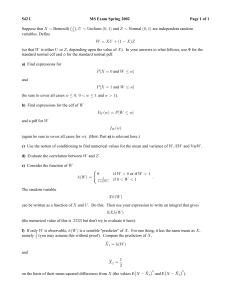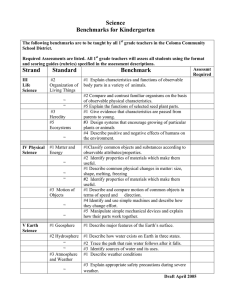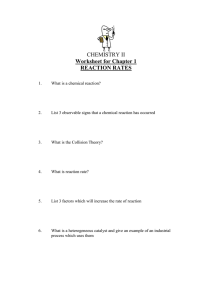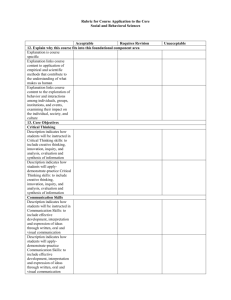Social & Behavioral Sciences Empirical & Quantitative Skills Criteria
advertisement
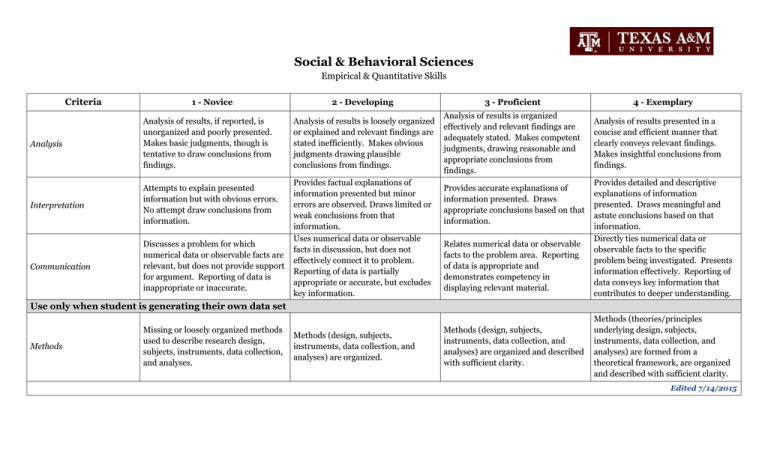
Social & Behavioral Sciences Empirical & Quantitative Skills Criteria 1 - Novice Analysis Analysis of results, if reported, is unorganized and poorly presented. Makes basic judgments, though is tentative to draw conclusions from findings. Interpretation Attempts to explain presented information but with obvious errors. No attempt draw conclusions from information. Communication Discusses a problem for which numerical data or observable facts are relevant, but does not provide support for argument. Reporting of data is inappropriate or inaccurate. 2 - Developing 3 - Proficient Analysis of results is loosely organized or explained and relevant findings are stated inefficiently. Makes obvious judgments drawing plausible conclusions from findings. Analysis of results is organized effectively and relevant findings are adequately stated. Makes competent judgments, drawing reasonable and appropriate conclusions from findings. Provides factual explanations of information presented but minor errors are observed. Draws limited or weak conclusions from that information. Uses numerical data or observable facts in discussion, but does not effectively connect it to problem. Reporting of data is partially appropriate or accurate, but excludes key information. Provides accurate explanations of information presented. Draws appropriate conclusions based on that information. Relates numerical data or observable facts to the problem area. Reporting of data is appropriate and demonstrates competency in displaying relevant material. 4 - Exemplary Analysis of results presented in a concise and efficient manner that clearly conveys relevant findings. Makes insightful conclusions from findings. Provides detailed and descriptive explanations of information presented. Draws meaningful and astute conclusions based on that information. Directly ties numerical data or observable facts to the specific problem being investigated. Presents information effectively. Reporting of data conveys key information that contributes to deeper understanding. Use only when student is generating their own data set Methods Missing or loosely organized methods used to describe research design, subjects, instruments, data collection, and analyses. Methods (design, subjects, instruments, data collection, and analyses) are organized. Methods (design, subjects, instruments, data collection, and analyses) are organized and described with sufficient clarity. Methods (theories/principles underlying design, subjects, instruments, data collection, and analyses) are formed from a theoretical framework, are organized and described with sufficient clarity. Edited 7/14/2015 Social & Behavioral Sciences Courses in this category focus on the application of empirical and scientific methods that contribute to the understanding of what makes us human. Courses involve the exploration of behavior and interactions among individuals, groups, institutions, and events, examining their impact on the individual, society, and culture. Core Objectives Critical Thinking Skills: To include creative thinking, innovation, inquiry, and analysis, evaluation and synthesis of information Communication Skills: To include effective development, interpretation and expression of ideas through written, oral and visual communication Empirical & Quantitative Skills: To include the manipulation and analysis of numerical data or observable facts results in informed conclusions. Social Responsibility: To include intercultural competence, knowledge of civic responsibility, and the ability to engage effectively in regional, national, and global communities
